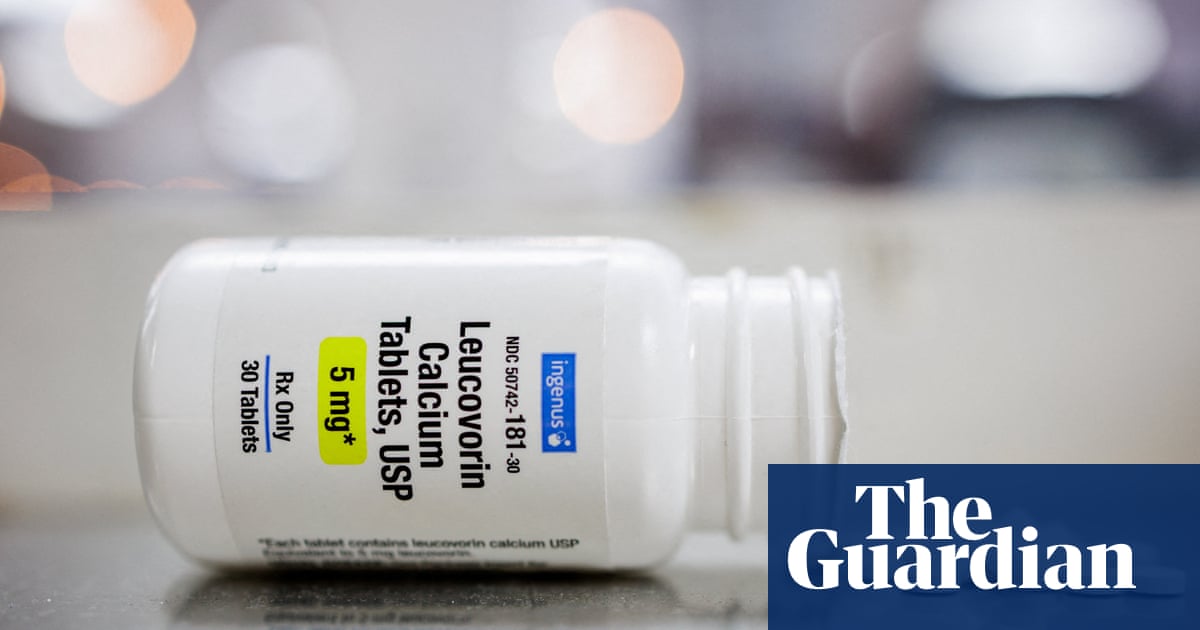
This week, the Trump administration announced that the FDA had approved leucovorin, a generic drug, as a treatment for autism. The announcement shocked health experts because the FDA’s usual approval process, which is lengthy and rigorous, has been bypassed.
Leucovorin, also known as folinic acid, is a derivative of vitamin B. It is typically used to counteract the harmful effects of methotrexate, a common chemotherapy drug. In a statement, the FDA commissioner, Martin Makary, said the drug would now be approved for patients with cerebral folate deficiency (CFD), a condition sometimes associated with autism spectrum disorders.
While a small number of studies have shown some improvement in children with autism who were treated with leucovorin, many autism researchers and advocates argue the announcement is premature and more research is needed.
“Current studies on high-dose leucovorin are very preliminary,” says Danielle Hall, director of health equity at the Autism Society of America. Premature claims about its efficacy could lead to “false hope” and “misinterpretation that leucovorin represents a ‘cure’,” she warns.
Here’s what you need to know about leucovorin.
What is leucovorin?
Leucovorin is “very similar to folic acid”, says Dr David Mandell, professor of psychiatry at the University of Pennsylvania Perelman School of Medicine. The difference is that leucovorin has been “altered in a way that makes it easier to get through the blood-brain barrier for people who can’t metabolize folic acid”, he says.
Folic acid is a synthetic form of folate, or vitamin B, a nutrient that helps the body make red blood cells and is essential for “healthy cell growth and function”, according to the Mayo Clinic. Folate is naturally found in leafy greens, beans, nuts and fruit like oranges and bananas.
Folic acid is especially important for individuals who are newly pregnant or might become pregnant.
“Not having enough folate during fetal development causes abnormalities of the brain,” says Dr Edward Quadros, a professor in the department of medicine at SUNY Downstate who specializes in folate absorption.
Specifically, it can lead to major birth defects of the brain and spine called neural tube defects (NTD). To prevent this, the CDC recommends those who might become pregnant take 400mg of folic acid a day.
The side effects of leucovorin are fairly minimal, says Mandell, and generally involve gastrointestinal discomfort. One 2021 review study in the Journal of Personalized Medicine found that, in individuals with autism spectrum and CFD, side effects of leucovorin were generally mild, but in some cases included aggression, agitation, headaches, insomnia and increased tantrums.
What is the link between folate deficiency and autism?
It’s not entirely clear.
“What percentage of autistic people have folate deficiencies is still under investigation,” says Dr Matthew Lerner, associate professor and director of the Life Course Outcomes research program at the AJ Drexel Autism Institute at Drexel University. But he adds that it’s “certainly not a majority”.
The FDA’s linking of CFD and autism was perplexing to some.
Mandell notes that the approval announcement says leucovorin can help children with CFD and that, because “these children have some autism-like symptoms, therefore we should consider it as a treatment for autism”, Mandell says.
“That’s quite a Rube Goldberg-like set of contortions,” he adds.
“People in the general population tend to think of autism as one diagnosis,” says Dr Elliott Gavin Keenan, a post-doctoral fellow at the AJ Drexel Autism Institute. In reality, he says, autism can be caused by a variety of factors including genetics and severe maternal stress during pregnancy. “It’s really a spectrum of different disorders, and they all probably have different treatments.”
after newsletter promotion
Has leucovorin been used in autism treatment before?
Not officially. But for at least a decade, Mandell estimates, people have been exploring the off-label use of leucovorin for autism treatment.
The Facebook group Leucovorin for Autism currently has over 45,000 members. And on Reddit, users in subreddits like r/Autism_Parenting have discussed the drug for years. “My two sons both take leucovorin,” wrote one user in 2023. “In one son, it works great. [For] the other it is mediocre.”
Keenan recalls taking leucovorin for his autism and bipolar disorder back in 2018. “I didn’t notice a big improvement,” he says, nor did he notice any negative side effects. “It just went straight through me,” he says. He stopped taking the drug after a few months.
Autism researchers don’t discount that leucovorin could potentially be helpful to some people with autism. But they say much more research is needed in order to identify the populations that could benefit from it the most.
“To take the promise of something like leucovorin seriously, you need rigorous, double-blind, placebo-controlled, transparent trials,” says Lerner.
How does the FDA usually approve drugs?
In his statement announcing the FDA’s approval of leucovorin, Makary said that the agency had reached this decision after “a systematic analysis of literature published between 2009-2024”. This appears to be a significant departure from how the agency has historically approved drugs.
“There have been several efforts to have other medications approved for autism,” says Lerner. “Those have been years long, involving very large, extensive, rigorous, careful studies. And in most cases, they were not approved.”
According to the FDA’s own website, the drug approval process is complex and time consuming, involving years of clinical trials, evaluation of research and inspection of facilities where the drugs will be manufactured.
Keenan acknowledges that the FDA’s usual approval process is “expensive and imperfect”. But, he adds, “it keeps people safe”.
The FDA’s leucovorin announcement was also shocking because, unlike the FDA’s usual approvals, it did not include dosage recommendations or guidelines of how to safely take the drug. Without this information, Lerner argues, their guidance amounts to, “Hey, here’s this medication, maybe you should try it.”
“I can’t think of another instance where something reaches approval and there are no guidelines,” says Lerner. “That’s generally not how we do care in this country, or in the modern world.”
Source link

